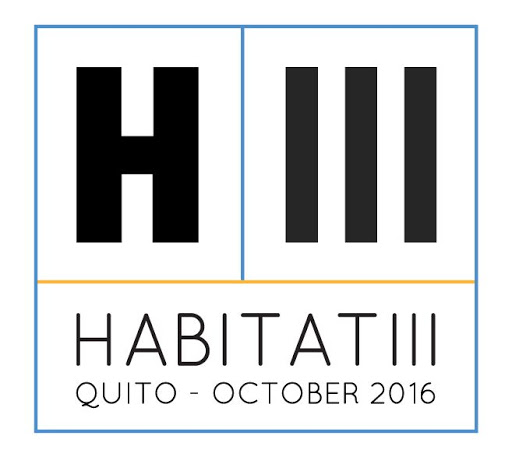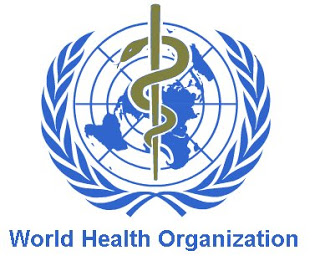

Seychelles delegation attended the first world conference on Tourism Development in Beijing China
The Seychelles delegation headed by Sherin Naiken, CEO of the Seychelles Tourism Board attended the first world Conference on Tourism Development in the Peoples Great Hall of China, Beijing on Thursday the 20th May 2016. The event which was jointly organised by the China National Tourism Administration and the UNWTO was attended from the Seychelles side by Vivianne Fock Tave, the Seychelles Ambassador to the Peoples Republic of China, Jean luc Lai Lam, Seychelles Tourism Board Manager for China, Stephanie Lablache and Lee Huan Huan both Seychelles Tourism Board Senior Marketing Executives based in Seychelles and Beijing respectively.
Important guests at the event were Mr. Li Keqiang, Prime Minister of the Republic of China, Mr.Filipe Jacinto Nyusi, President of Mozambique, Mr. Taleb Rifai, Secretary-General of the World Tourism Organisation, who all addressed the 1000 delegates at the opening ceremony. The delegates were from over a hundred countries which consisted of both Government organisations as well as leading tourism partners from the private sector.
The Summit agenda was on sustainable Development through Tourism, Tourism for Poverty Reduction, Tourism for Peace and it was moderated by the famous CNN Televison Anchor Richard Quest. The day ended with the adoption of the Beijing Declaration.
Topic which relates more to Seychelles and which was the most interesting debate of the day was attaining the sustainable development goals (SDGs) through tourism. The debate centred on what countries are required to do to use tourism as the vehicle to achieve their SDG’s. Indeed, the various participants in the debate stressed on the need to have a more cohesive approach between the various units—Public and private if the SDGs are to be achieved. Amongst the various subject matter raised, were the role of the public and private sector, the need to work together and the need for the SDGs to be understood by all levels of the Government as well as by the business community. As one participant shared “all the ministers in the Government are defacto a minister for tourism!”
The head of delegation, Ms Naiken, had a lot to share to other delegates in between sessions as the summit did not have open plenary sessions. “Seychelles have had decades of experience and lots success stories in sustainable development” shared miss Naiken to a delegate “The cornerstone of every policy and law in Seychelles has been sustainability.”
The new sustainable development agenda, which came into effect in January 2016, succeeded the Millennium Development Goals (MDGs) launched in 2000 to which Seychelles managed to attain almost all of it, some even before the process started. Seychelles is well under way to attain the new set of targets.

UN Report: The Earth is not flat – it is urban
While cities have emerged over the past 20 years as the world’s economic platforms for production and innovation, helping millions escape poverty through better jobs and improved quality of life, mass urbanization has also led to overcrowding, deepened inequalities and triggered a raft of environmental and health challenges, according to a new United Nations report.
The dramatic shift towards urban life has profound implications for energy consumption, politics, food security and human progress, says the inaugural edition of the World Cities Report, compiled by the UN Human Settlements Programme (UN-HABITAT), which stresses that although some of this change is positive, poorly planned urbanization can potentially generate economic disorder, congestion, pollution and civil unrest.
On the theme, ‘Urbanization and Development: Emerging Futures,’ the report presents an analysis of urban development of the past 20 years and reveals, with compelling evidence, that there are new forms of collaboration and cooperation, planning, governance, finance and learning that can sustain positive change.
While noting that two-thirds of the global population is expected to live in cities by 2030 and produce as much as 80 per cent of the global gross domestic product (GDP), the report unequivocally demonstrates that the current urbanization model is unsustainable in many respects.
In the run up to HABITAT III – shorthand for the major global summit formally known as the UN Conference on Housing and Sustainable Urban Development, set to be held in Quito, Ecuador, on 17-20 October 2016 – the report conveys a clear message that the pattern of urbanization needs to change to better respond to the challenges of our time, to address issues such as inequality, climate change, informality, insecurity, and unsustainable forms of urban expansion.
UN-Habitat Executive Director, Dr Joan Clos, said: “In the twenty years since the Habitat II conference, the world has seen a gathering of its population in urban areas. This has been accompanied by socioeconomic growth in many instances. But the urban landscape is changing and with it, the pressing need for a cohesive and realistic approach to urbanization.
“A ‘New Urban Agenda’ is required to effectively address the challenges and take advantage of the opportunities offered by urbanization,” said Mr. Clos. As the urban population increases, the land area occupied by cities is increasing at a higher rate. It is projected that by 2030, the urban population of developing countries will double, while the area covered by cites could triple.
Such urban expansion is wasteful in terms of land and energy consumption and increases greenhouse gas emissions. The urban centre of gravity— at least for megacities, has shifted to the developing regions. In 1995, there were 22 large cities and 14 megacities globally; by 2015, both categories of cities had doubled, with 22, or 79 per cent of the megacities located in Latin America, Asia and Africa. The fastest growing urban centres are the medium and small cities with less than one million inhabitants, which account for 59 per cent of the world’s urban population.
Noting that urbanization provides a great opportunity to achieve the Sustainable Development Goals (SDGs), the report warns that while in some cities, for some people, former New York City Mayor Michael Bloomberg’s “urban renaissance” is occurring, for most of the world this is absolutely not the case.
“Urban policy failure has been spectacular in its visibility and devastating in its impacts on men, women and children in many cities,” says the report, stressing that there are too many people living in poor quality housing without adequate infrastructure services such as water, sanitation, and electricity, without stable employment, reliable sources of income, social services, or prospects for upward social mobility.
“Prosperity was once described as a tide that raised all boats, but the impression today is that prosperity only raises all yachts,” the report underscores, setting out the key elements of a comprehensive approach to a ‘New Urban Agenda’ which must be bold, forward looking, and tightly focused on problem-solving with clear means of implementation.
For the new Agenda to take hold, governments, international organizations, bilateral aid and civil society must recognize the transformative power of cities and their unique capacity to generate new forms of economy, with greater sensitivity to the environment, culture, and social life. Moreover, the report argues that for governments, “adopting urban policies means that they accept that the world consists not just of national macro-economies, but also of urban areas, with many different sizes, forms and characters.”
“This is why today we stand at a Galilean moment. The Earth is not flat. It is urban. If we do not recognize that the settlement down the road is related to where we live, we shall all suffer, and unnecessarily so,” warns the report’s final chapter, urging global political leaders to recognize that the world is very different than it was 30 years ago – that the challenges facing our cities “are footprints of our future, warning us of the world to come and imploring us to do better.
“It is for the Habitat III conference to steer the ‘emerging futures’ of our cities on to a sustainable, prosperous path,” the report concludes.

UN WHO: Zika on doorstep of Africa
The United Nations health agency today confirmed that the Zika virus strain circulating in Cabo Verde, an island nation off the northwest coast of Africa, is the same as the one responsible for the outbreaks linked to neurological disorders and microcephaly in South America.
The virus was most likely imported from Brazil, according to a press release issued by the World Health Organization (WHO).
As of 8 May 2016, there have been 7,557 suspected cases of Zika in Cabo Verde. Three cases of microcephaly have been reported from Cabo Verde with one case by the Centers for Disease Control and Prevention (CDC) after being sent to the United States. So far, no case of Guillain-Barre Syndrome (GBS) has been reported in Cabo Verde.
“The findings are of concern because it is further proof that the outbreak is spreading beyond South America and is on the doorstep of Africa,” said Matshidiso Moeti, WHO Regional Director for Africa. “This information will help African countries to re-evaluate their level of risk and adapt and increase their levels of preparedness.”
WHO warned that as a first step, these countries should heighten risk communication to pregnant women to raise awareness of complications and promote protection steps to avoid mosquito bites as well as sexual transmission. In addition, countries should increase their surveillance for Zika transmission and congenital malformations, such as microcephaly, as well as Guillain-Barré syndrome.
WHO will continue to review existing risk assessments, increase surveillance, and assess laboratory testing capacity and support community engagement and risk communications in priority countries through its Zika Virus Disease Incident Management System launched in February in the capital city of Brazzaville, the Republic of the Congo, and at its Geneva headquarters.
In addition, WHO and its partners will support the countries in the African region to step up preparedness efforts for early detection, confirmation and management of potential complications related to Zika infection. The response will build on investments in strengthened systems made in West Africa during the Ebola emergency.

UN chief: Saddened by EgyptAir flight crash
United Nations Secretary-General Ban Ki-moon is “deeply saddened” by the crash of EgyptAir’s flight MS804 yesterday, his spokesman said today in a statement.
According to preliminary reports, 66 people were on board the Paris-to-Cairo flight crossing the Mediterranean Sea.
“He sends his heartfelt condolences to the families of the victims and to the governments and peoples affected by this tragedy,” said the statement.
